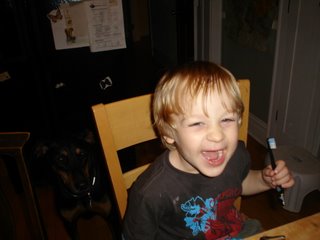PASSIONATE TEACHERS
PASSIONATE LEARNERS
PASSIONATE SCHOOLS
WHY NOT?
Previous Posts
- Kill Worksheets; Save Our Children
- Irony
- What do you want your kids to be able to do?
- DIY: Alternative Yearbook
- The Future is Here!
- Writing a Book about Education
- Echoes of Saul Alinsky and the Problems Facing Ame...
- Worst Practices: Round Robin Reading
- Summer Reading List 2007
- The Importance of Praise
Archives
- January 2006
- February 2006
- March 2006
- April 2006
- May 2006
- June 2006
- July 2006
- August 2006
- September 2006
- November 2006
- December 2006
- January 2007
- June 2007
- August 2007
- November 2007
- February 2008
- July 2008
- December 2008
- May 2009
THE TRUTH IS OUT THERE
- Google News
- Poetry 180
- Schools Matter
- Race and Pedagogy Project
- Society for Neuroscience
- The World Question Center
- Public Education Network
- Rethinking Schools
- National Board on Educational Testing and Public Policy
- Creating Passionate Users
- Mind Hacks
- Caveon: Test Security
- What the Bleep do We Know?
- The Education Sector

Friday, November 24, 2006
Sunday, November 19, 2006
Teacher Hack: NinjaWords and the Academic Word List
 Generate vocabulary lists with definitions using NinjaWords in conjunction with the Academic Word List. It’s easy. The NinjaWords dictionary doesn’t refresh, so just enter the words on the AWL separated by commas and let the Ninjas go to work. You’ll end up with a word list with definitions. Cut, paste, post or print. NICE! Here’s a sample: structure (v) : give a structure to "I need to structure my days" (n) : a thing constructed; a complex entity constructed of many parts; the manner of construction of something and the arrangement of its parts "the structure consisted of a series of arches" significant (adj) : fairly large; important in effect or meaning "won by a substantial margin" derived (adj) : formed or developed from something else; not original "the belief that classes and organizations are secondary and derived" context (n) : discourse that surrounds a language unit and helps to determine its interpretation; the set of facts or circumstances that surround a situation or event "the historical context" analysis (n) : an investigation of the component parts of a whole and their relations in making up the whole; the abstract separation of a whole into its constituent parts in order to study the parts and their relations Related Post: Word Poverty and the Academic Word List |
Saturday, November 11, 2006
Think Aloud, Brain Mechanics, Academic Achievement, and the Million Dollar Question
 Seed Magazine has a must read article “Who Wants to be a Cognitive Neuroscientist Millionaire?” A cognitive science researcher, Ogi Ogas, applies his understanding of brain mechanics (i.e., learning, memory, decision making) to win big bucks on the syndicated game show. The article is an uber think aloud; a wonderful piece of metacognition. Isn’t it time we teach students the basic of brain mechanics so they can have an academic edge? Mini lessons in priming, intuitive decision making, and theory of mind would be a start. |

